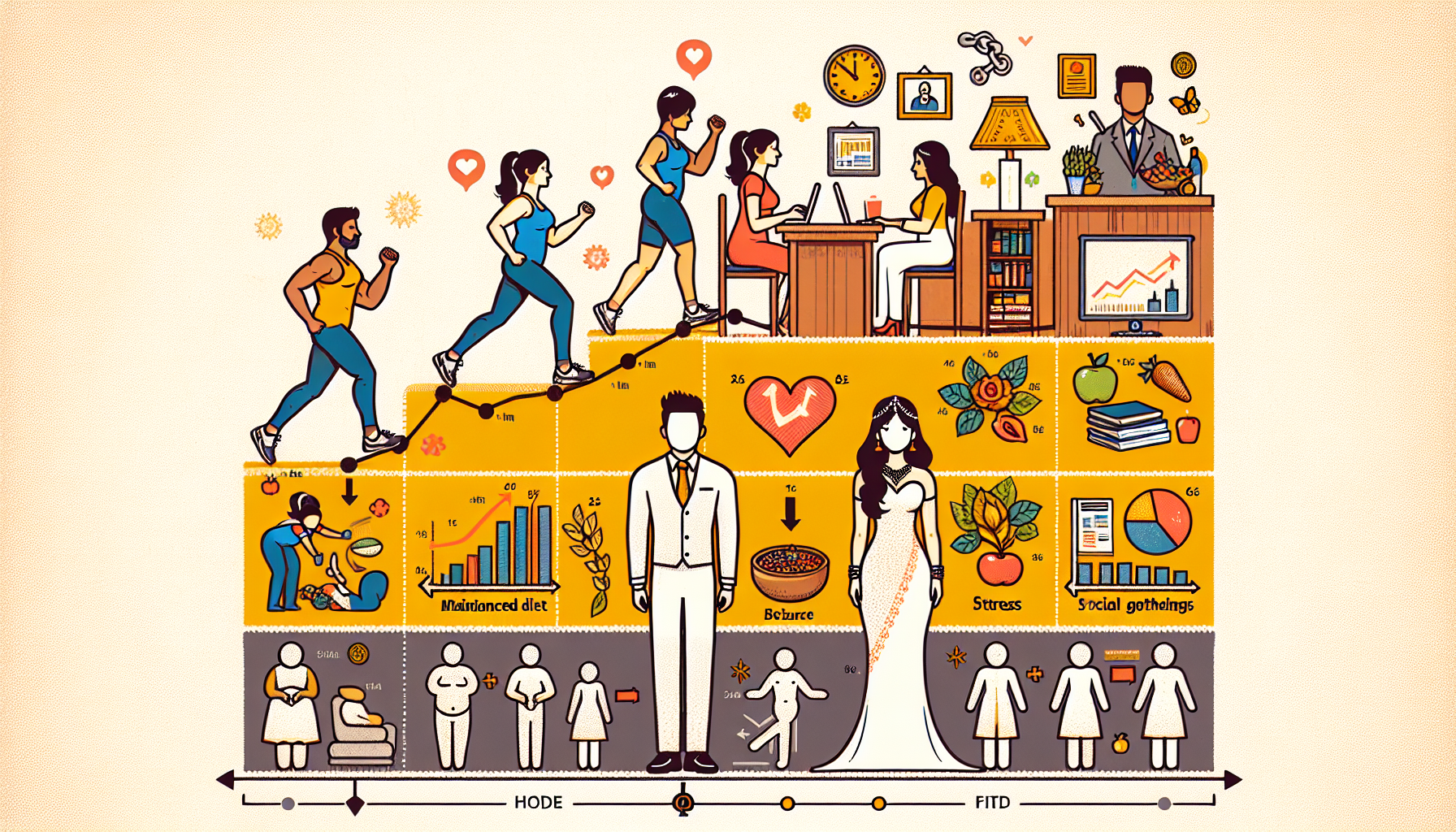Marriage and Its Surprising Impact on Weight Gain: A Gender Perspective
Introduction: A Curious Weight Gain Phenomenon
Did you ever wonder why your jeans feel tighter after you tied the knot? While it's common to joke about "letting yourself go" once you're married, there might be more truth to it than we realized, particularly for men. Recent studies reveal intriguing insights about the relationship between marriage and weight gain, describing a scenario where husbands are significantly more likely to gain weight compared to their unmarried peers. Let's dive into this intriguing topic and explore the factors contributing to this pattern.
The Study Behind the Headlines
The Research Findings
Researchers from Poland took a close look at the health data of about 2,500 individuals, aiming to understand the link between marriage and obesity. Their findings? Married men were 3.2 times more likely to be obese than their unmarried counterparts. In contrast, such a significant link wasn’t observed for women. This raises an interesting question: why are men prone to gain weight after marriage while women aren't?
Understanding the Numbers
Obesity was gauged using the Body Mass Index (BMI), a simple formula involving height and weight. A BMI of 30 or above signifies obesity. Moreover, married men were 62% more likely to be overweight (BMI between 25 and 29.9) than single men. Women showed some increase in the likelihood of being overweight after marriage, but it was relatively modest at 39%.
Cultural Insights on Weight and Marriage
Cultural Influences on Weight Gain
Gender-Specific Culture
The disparity in how marriage impacts men and women differently might hinge on cultural attitudes. Traditionally, men might feel less pressure to maintain a particular body image post-marriage, while societal norms still place certain expectations on women. This can lead to differing habits and health priorities between genders.
Shared Habits and Domestic Routines
Marriage often leads to shared eating habits, which can be a crucial factor. For many, marriage signals a shift towards less active lifestyles and more indulgent eating as couples enjoy cozy meals together, often prioritizing convenience over nutrition. Men might also fall into traditional lifestyles where work schedules minimize exercise and mindful eating habits.
The Work-Life Balance Challenge
Job Stress and Unhealthy Eating
Experts like Jim Pollard from the UK Men’s Health Forum suggest that long working hours combined with poor dietary choices might be pivotal in understanding why married men gain weight. The stress of demanding jobs often results in unhealthy eating patterns, such as indulging in fast food or high-calorie snacks, which pile up over time.
Lack of Physical Activity
Apart from dietary habits, the reduction in physical activity post-marriage can't be ignored. The hustle and bustle of balancing professional life and family commitments often compromise exercise routines, leading to gradual weight gain.
Global Perspectives: Marital Weight Trends Across Cultures
Insights from China
A parallel study from China’s Academy of Social Sciences uncovers that men experience a 5.2% increase in being overweight and a 2.5% increase in obesity within the first five years of marriage. However, similar to the Polish study, women’s BMI remained relatively unchanged over time. This highlights a global pattern suggesting that marital weight gain is not just culturally confined.
Calories in, Exercise Out
Chinese research also pointed to increased calorie intake and reduced exercise as primary reasons for men’s weight gain. The term “happy obesity” is often used here, denoting weight gain from contentment in personal relationships.
Potential Solutions: Tackling Marital Weight Gain
Healthy Habits Together
Married couples can take proactive steps towards healthier lifestyles by embracing joint exercise routines and cooking nutritious meals together. Fitness-oriented ‘date nights’ or cooking classes can be delightful ways to bond while staying healthy.
Community and Support
Additionally, communities can play a role in providing resources and support for couples to maintain healthier lifestyles. Encouraging participation in local sports clubs or community fitness challenges could foster a communal spirit around wellness.
Conclusion: Rethinking Marital Weight Dynamics
In summary, the journey into marriage brings various lifestyle changes that, unsurprisingly, affect our waistlines. Men, in particular, seem more susceptible to weight gain after marriage, possibly due to less concern about maintaining their body image, increased work stress, and unhealthy habits formed during shared domestic life. But as understanding grows, we find opportunities for couples to consciously counteract this trend by embracing healthier life choices together.
Could a focus on integrating health-conscious routines into our domestic spheres lead to happier and healthier marriages? Let's start those conversations and challenge the status quo.

